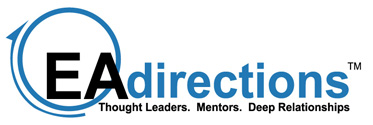We have been getting a lot of questions on the value of Enterprise Architecture (EA) certifications in the last 6 months. There seems to have been an increase in the offerings of EA certifications. Like many elements associated with EA, such as tools, frameworks, methods, continued maturation is evident. However, EAdirections generally cautions its clients about EA certifications because of the lack of accepted standards across the globe regarding the definition, scope, role and responsibilities of an Enterprise Architect. An organization needs to be clear on the intent and purpose of a particular provider’s EA certificate and associated process and testing for achieving their certification.
EA Certification providers generally include a mix of staff and guest/expert instructors. They all teach different things with different emphasis, have different qualifications required to receive certification, and, in short, do not provide anything approaching a standard, common certification across providers. Some have varying levels of dependency/sponsorship of tool and/or consulting vendors.
Commonly known providers include:
The Federated Enterprise Architecture Certification (FEAC) Institute offers training and an EA certification program.
The Enterprise Architecture Center of Excellence (EACOE) offers certification to its members, with four distinct grades based on workshop completion, years of experience as a practicing architect, reviewed performance on an EA development, and number of recommendations from peers. The EACOE is lead by Sam Holcman, also chairman of the Pinnacle Business Group and formerly President of the Zachman Institute for Framework Advancement (ZIFA), which no longer exists. )
IBM and Carnegie Mellon University offers certification to those who compete three courses in fundamental, applied and advanced concepts of EA. The curriculum was developed by CMU’s Institute for Software Research (ISR), including input from Dr. Scott A. Bernard, the author of “An Introduction to Enterprise Architecture.” The applied course includes hands-on modeling activities using IBM’s Telelogic System Architect tool.
The Open Group offers an IT Architect Certification Program (ITAC) with three levels of certification (Certified, Master and Distinguished) and is separate from, but complementary to, TOGAF certification. ITAC is publicized as being agnostic to method and focused on the skills and experience that should be evident at each level of IT Architect.)
The Global Enterprise Architect Organization (GEAO) has merged into the Association of Open Group Enterprise Architects (AOGEA) and we suspect that their certification program has been replaced with the Open Group offerings. This is supported by the fact that TOGAF or ITAC certification is a membership requirement for AOGEA.
We are interested in your experiences with EA Certification programs and the impact they have had on your EA Program.
Directions: Understand the intent and origins of the EA certification options you are considering before you apply. While all of the certification programs have valuable educational components, they vary widely by content, concept and emphasis.
